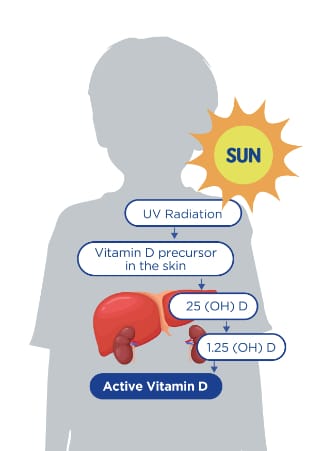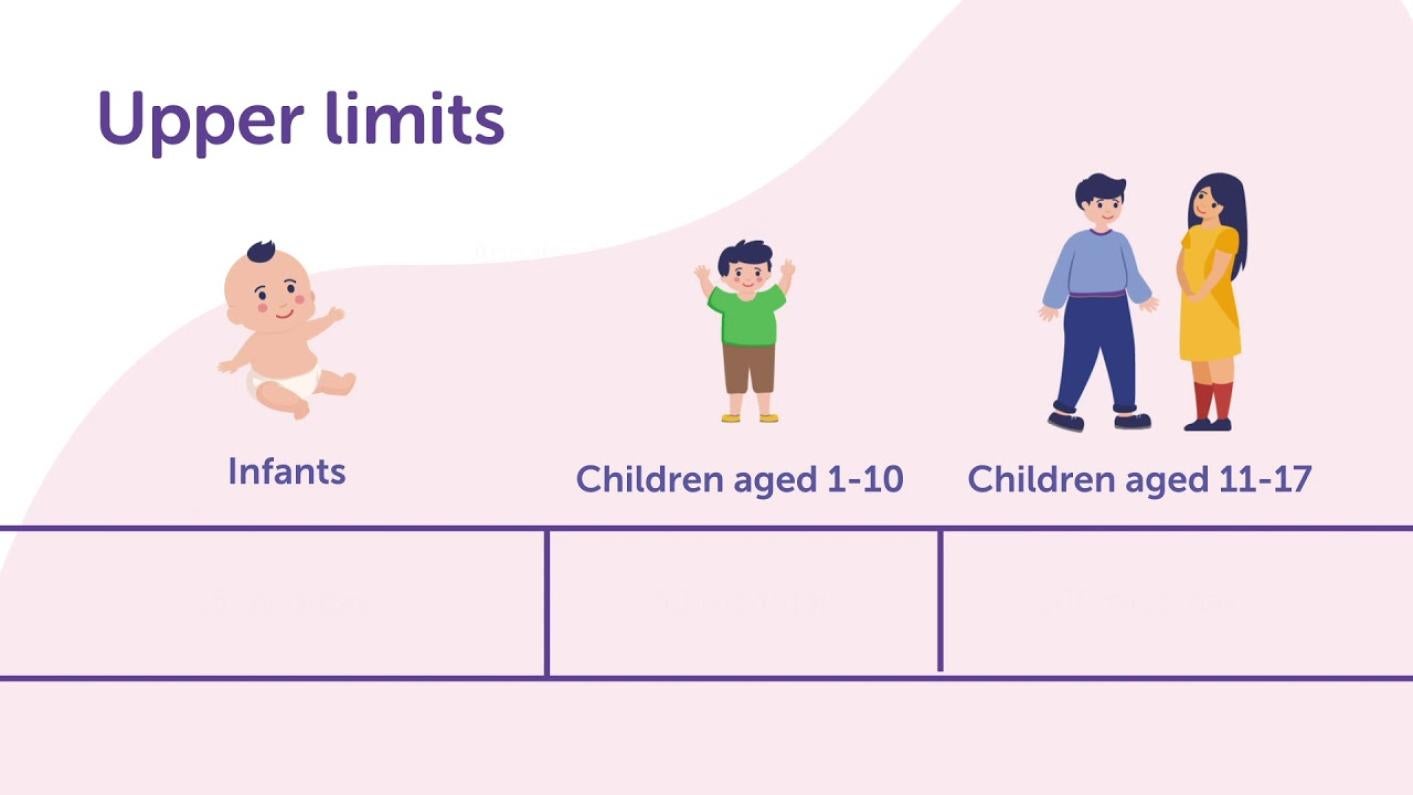Overview
Vitamin D is a fat-soluble vitamin and an essential nutrient. It supports healthy bone development and vital functions such as the immune system from conception through childhood and into adulthood1.
Vitamin D deficiency in children is a public health concern in the UK2. The Department of Health and Social Care recommends that from birth to 1 year of age, breastfed babies should receive vitamin D supplements to make sure they get enough3.
What are the benefits of Vitamin D for babies?
Vitamin D is a prohormone that enters the body through a precursor in the skin, it is then transformed into its active form in the liver and kidneys. Direct sunlight exposure is the best source of natural vitamin D, it is synthesized in the skin upon exposure to sunlight containing sufficient Ultraviolet B (UVB) radiation, levels of which are higher in the summer months, around midday. This is the main source for most people. It can also be obtained from foods or vitamin D supplements.

Vitamin D is synthesised in the skin by the action of sunlight containing UBV radiation (April to September).
Vitamin D deficiency can lead to fits or rickets4,5, dietary sources are essential when sunlight containing UVB radiation is limited (for example, during the winter months). There are specific recommendations for supplementation, these consist of vitamin D drops for babies.
People with more skin pigment absorb less UVB than those with fair skin and will need more sun exposure to produce the same amount of vitamin D6. To ensure a healthy status during winter months is important to take a vitamin D supplement7-9.
What are the dietary sources of Vitamin D?
Vitamin D is found in a small number of foods such as:
- Oily Fish
- Organ meat, such as liver
- Egg yolks
- Milk
- Fortified foods like breakfast cereals and fat spreads10
How much vitamin D per day is recommended for babies and children?
Babies and young children are at risk of developing vitamin D deficiency9. Body stores can decline by 50% over less than a month in infants, and thus without a source of vitamin D, vitamin D deficiency can rapidly develop1.
A survey carried out in the UK reported that the major contributor to vitamin D intake from food for all age groups of children not receiving any breast milk was infant formula8. Infant formula was the largest contributor to vitamin D intake for those aged 4 to 6 months; 7 to 9 months and 10 to 11 months (85%, 80% and 72%, respectively) followed by the food group ‘commercial infant foods’ (12%, 12% and 10%, respectively)8.
A ’safe intake’ of vitamin D is recommended in the range 8.5-10 μg/d for all infants from birth up to 1 year (whatever their mode of feeding) in the UK.
Vitamin D for breastfed babies
The Department of health and Social Care recommends that babies who are being breastfed are given a daily vitamin D supplement from birth, whether the mother is taking the supplement herself or not. Vitamin D for breastfed babies: From birth to 1 year, breastfed babies should be given a daily supplement containing 8.5 to 10 micrograms (µg) of vitamin D3.
Vitamin D for formula-fed babies
Infants who are formula-fed should be given a vitamin D supplement if they're having less than 500ml (about a pint) of infant formula a day, as infant formula is fortified with vitamin D and other nutrients3.
How much vitamin D per day should be taken during toddlerhood?
Vitamin D deficiency is common in toddlerhood, 6% of infants were at risk of vitamin D deficiency as reported by the Diet and Nutrition Survey of Infants and Young Children (DNSIYC) 2013. Children aged 1 to 4 years old should be given a daily supplement containing 10µg of vitamin D7,8.
Summary
The Department of Health and Social Care recommends3:
- Babies from birth to 1 year of age who are being breastfed should be given a daily supplement containing 8.5 to 10 micrograms of vitamin D to make sure they get enough.
- Babies fed infant formula should be given a vitamin D supplement if they're having less than 500ml (about a pint) of infant formula a day, as infant formula is fortified with vitamin D and other nutrients3.
- Children aged 1 to 4 years old should be given a daily supplement containing 10 micrograms of vitamin D.
Educating parents and carers about the importance of vitamin D is important to help improve the supplement adherence rates in the UK.


